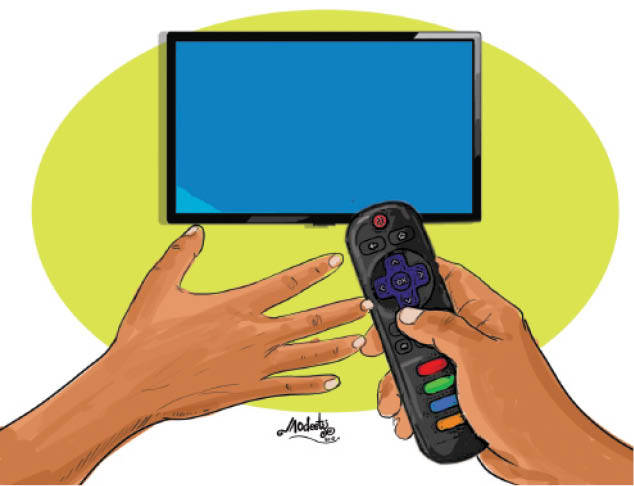
By Olayemi John-Mensah & Taiwo Adeniyi
Families do several things for recreation including watching programmes on television. This is common in several Nigerian homes as family members gather to watch television at night and relax after the day’s work. There are however, families, where watching television is a herculean task, especially large families where some members insist on watching their favourite programmes. This always leads to a struggle for the remote control units of the TV set and decoders.
Eugene Polley, the inventor of the first wireless television remote control unit, once said, “The flush toilet may have been the most civilized invention ever devised, but the remote control is the next most important.”
“The flush toilet is so ingrained in our notions of what it means to be modern that we can hardly imagine our lives without it. But the remote control? Yes, in fact this seemingly innocuous media accessory has also changed the way we inhabit our houses and experience our families.
“The effects of remote controls have cascaded through the home, affecting how we arrange our domestic spaces, which we share them with, and what we do there.”
Abidemi Adeleye, a mother of two, said the battle for the telly is not limited to her and her husband who would not want to miss live football matches, but also her son who cried whenever the television set was not tuned to carton channels.
“There are some programmes that I am interested in, which do not interest my husband, like women programmes and entertainment. So what I do is watch football matches with him while he will be forced to watch those other programmes with me,” she said while sharing how her family has been able to handle the situation.
She said her son was usually more difficult to please; as such her husband had to download his favourite cartoons on his phone and give it to him whenever he wants to watch a programme.
“These issues in the home are heightened by economic challenges; for instance if a family has more than two television sets, the members would not need to wait in turns to watch their favourite programmes,” she said.
Another woman, Mrs Tessy James, said handling the remote control unit could be challenging to couples, especially those without enough consideration for partner’s needs.
She said understanding is important to steering out of the telly issue successfully. Mrs James, who said she doesn’t watch television often due to the epileptic power supply in one of Abuja’s satellite towns where she stays, added that she derived less pleasure watching television as such her husband usually has exclusive right to the remote control except on weekends.
On weekends, she said her husband does ‘consider’ the fact that she hardly watches television on weekdays, “but that is if there is electricity,” she interjected.
Unlike Mrs James, a woman who prefers to be called Miriam said her husband, being the head of the family, is entitled to the remote and can tune the television to whatever channels he desired. “It is the channel that he tunes to that we all watch and if you are not contented, you go to your room, watch your phone or do something else,” she said.
Miriam who spoke to our reporter at Garki, said though she would have preferred to watch certain programmes on weekends, whenever husband was at home, she either watched football matches or retired to her room where she watched video on the internet from her handset.
A secondary school teacher, Mrs Afolayan Bridget, said her children are in control of the remote control because they want to watch their favourite programme anytime there was power supply – whether through public supply or the generator.
“I like watching educative and entertainment programmes but they will always want to watch cartoon and if I stop them their father would protest in their support so, I let them be.”
She said her husband was not a football fan like most men so he didn’t really care after a hard day’s work to watch the television. “He prefers we chat when he returns while the children watch their programmes before going to bed. He promised to get another television set when things get better so that we can fix that in our room,” she added.
A housewife, Mrs Janet Olufemi, said the children would always want to be in control and if you refused they would be angry and unhappy.
She added that whenever there was a football match, ‘Oga’ is in total control but she is indifferent. “But we had to come to an agreement with them and they understand. Now we watch most programmes together to the extent that we support daddy’s football club, Chelsea and everybody is excited.”
Mrs Olufemi also added that though her husband hardly watched entertainment programmes, “but he too has started joining us and it gives the family a great bonding.”

 Join Daily Trust WhatsApp Community For Quick Access To News and Happenings Around You.
Join Daily Trust WhatsApp Community For Quick Access To News and Happenings Around You.


